Imagine stepping into a serene washitsu (和室, traditional Japanese room) with soft tatami underfoot. The air is perfectly balanced not too dry, not too damp and infused with the subtle scent of hinoki (檜, Japanese cypress). It’s a sensory moment of wa (和, harmony).
For many of us, a humidifier brings moisture to dry indoor air, while essential oils bring calm, focus, or a refreshing burst of energy. But can you simply add essential oils to your humidifier? Let’s explore the facts, risks, and best practices for combining moisture and aroma without damaging your device or compromising your health.
Although the question of whether you can put essential oils into a humidifier still remains, there is no question about the sense of tranquility they bring to any room!

Compatibility of Essential Oils with Humidifiers
Not all humidifiers are designed to work with essential oils. Here’s why:
- Ultrasonic humidifiers (超音波式加湿器 chōonpa-shiki kashitsuki) use ultrasonic technology a metal diaphragm vibrating at high frequency to create a cool mist. Adding oils can coat the diaphragm, interfere with mist production, and cause malfunction.
- Cool mist humidifiers with filters can become clogged when oils mix with water, leading to humidifier malfunction or reduced performance.
- Warm mist humidifiers, which boil water, are also unsuitable for use with essential oils. Heat can alter the oil’s chemical makeup and may even release potentially irritating fumes.
Some humidifiers are marketed as essential oil humidifiers with a dedicated essential oil tray or medicine cup. These are specifically designed to diffuse oils safely without damaging the main water tank.
Bottom line: Always check the manufacturer’s instructions before adding anything besides water.
How to Use Essential Oils in a Humidifier Safely
If your humidifier isn’t designed for oils, don’t pour them directly into the water tank. Instead, consider these safe practices:
- Use a dual-function diffuser-humidifier. Some devices combine a diffuser with a humidifier, designed to handle both water and oils.
- Add oils to an essential oil tray or medicine cup. If your humidifier has a designated compartment, add just a few drops. This keeps the oil separate from the main water system.
- Clean regularly. Oils can leave residue. After use, clean the tray or cup with white vinegar and mild soap to prevent buildup and maintain the device's performance.
- Stick to pure essential oils. The best essential oils for use with a humidifier include lavender, lemon, and eucalyptus. Avoid fragrance oils or blends with additives.
This is similar to the care you’d give to a beloved chawan (茶碗, matcha bowl), which is delicate, functional, and requires mindful cleaning after every use.
Potential Benefits of Using Essential Oils in Humidifiers
When done correctly (with the right device), adding essential oils to your humidifier may:
-
Enhance emotional well-being (心の安らぎ kokoro no yasuragi)
Lavender essential oil (rabendā ラベンダー) is known for calming effects, while citrus oils may uplift mood. -
Support easier breathing
Research suggests eucalyptus oil may have mild expectorant properties, which can make breathing feel more comfortable. -
Refresh indoor air naturally
Peppermint essential oil can provide a crisp, clean scent that feels invigorating. -
Complement skin care routines
By adding moisture and a hint of essential oil, some people find the air feels gentler on their skin.
Think of it as aromatherapy meeting kansō taisaku (乾燥対策, dry-air countermeasures), a soothing ritual for body and mind.

Risks and Manufacturer Recommendations
Adding essential oils to the wrong type of humidifier can lead to:
- Device damage: Oils can cause plastic tank erosion, tank cracks, or clog the fan.
- Health risks: Oils heated or dispersed improperly may irritate sensitive noses, especially in children or pets.
- Warranty voiding: Many manufacturers clearly state that using oils in a standard cool mist humidifier is not recommended.
In Japan, where precision and craftsmanship are valued just like in traditional ceramic yunomi (湯のみ, tea cups) it’s considered respectful to use a product as intended.
Types of Essential Oils Commonly Used
If your humidifier is oil-compatible, start with gentle, high-quality oils:
- Lavender essential oil – soothing, relaxing
- Lemon essential oil – bright, refreshing
- Peppermint essential oil – invigorating, cooling
- Eucalyptus essential oil – refreshing, often used for easier respiration
- Orange essential oil – uplifting, warm
Always add just a few drops less is more when it comes to aromatherapy in a humidifier.
A Better Alternative: Pairing a Diffuser with a Humidifier
Many experts recommend keeping humidification and aromatherapy separate:
- Use a humidifier for its main purpose: adding moisture to the air.
- Use a diffuser or nebulizer for essential oils, designed for high frequency oil dispersion without water.
This approach preserves the lifespan of your humidifier and gives you full control over the scent experience.
Bringing It Back to Japanese Lifestyle Traditions
In traditional Japanese culture, kanso (簡素, simplicity) is a core aesthetic principle using each object for its intended purpose. Just as you wouldn’t serve matcha in a soup bowl, you wouldn’t overload a humidifier with oils it wasn’t meant to handle.
Instead, imagine this calming scene: a humidifier quietly moisturizing the air, while a ceramic aroma diffuser releases the delicate scent of yuzu (柚子) into the room. Nearby, you sip freshly whisked matcha from a handcrafted chawan, appreciating how each object serves its purpose in perfect harmony.
Key Takeaways
- Check compatibility first. Only put essential oils in a humidifier if it has a designated oil tray or is specifically designed for use with essential oils.
- Avoid mixing oils directly in the water tank. It can damage the machine and reduce its effectiveness.
- Benefits are subtle. Oils may enhance mood and create a pleasant atmosphere, but use sparingly.
- Keep devices clean. Regular cleaning with white vinegar helps prevent residue.
- Consider a diffuser. For regular aromatherapy, a dedicated diffuser is safer and more effective.


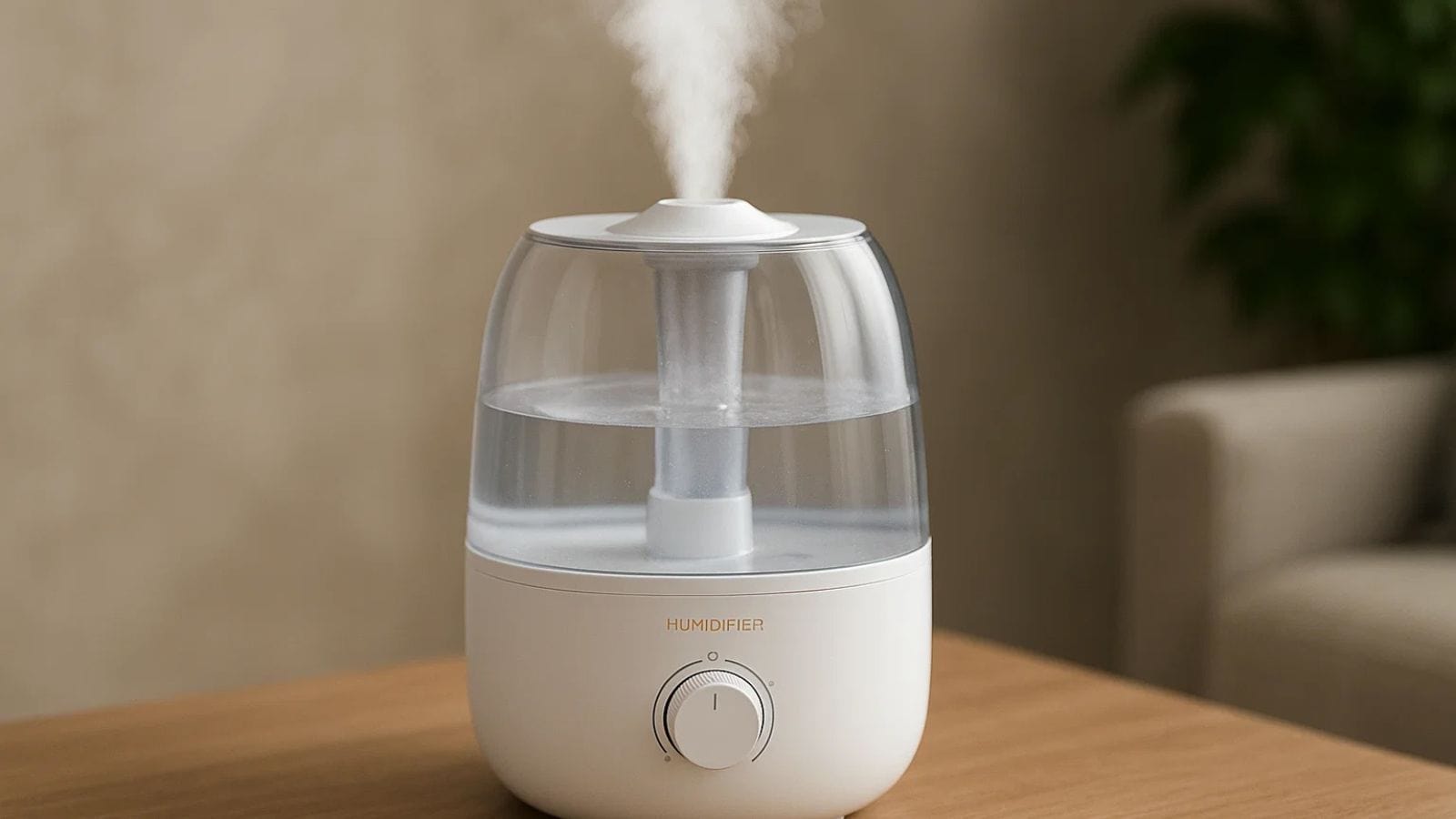


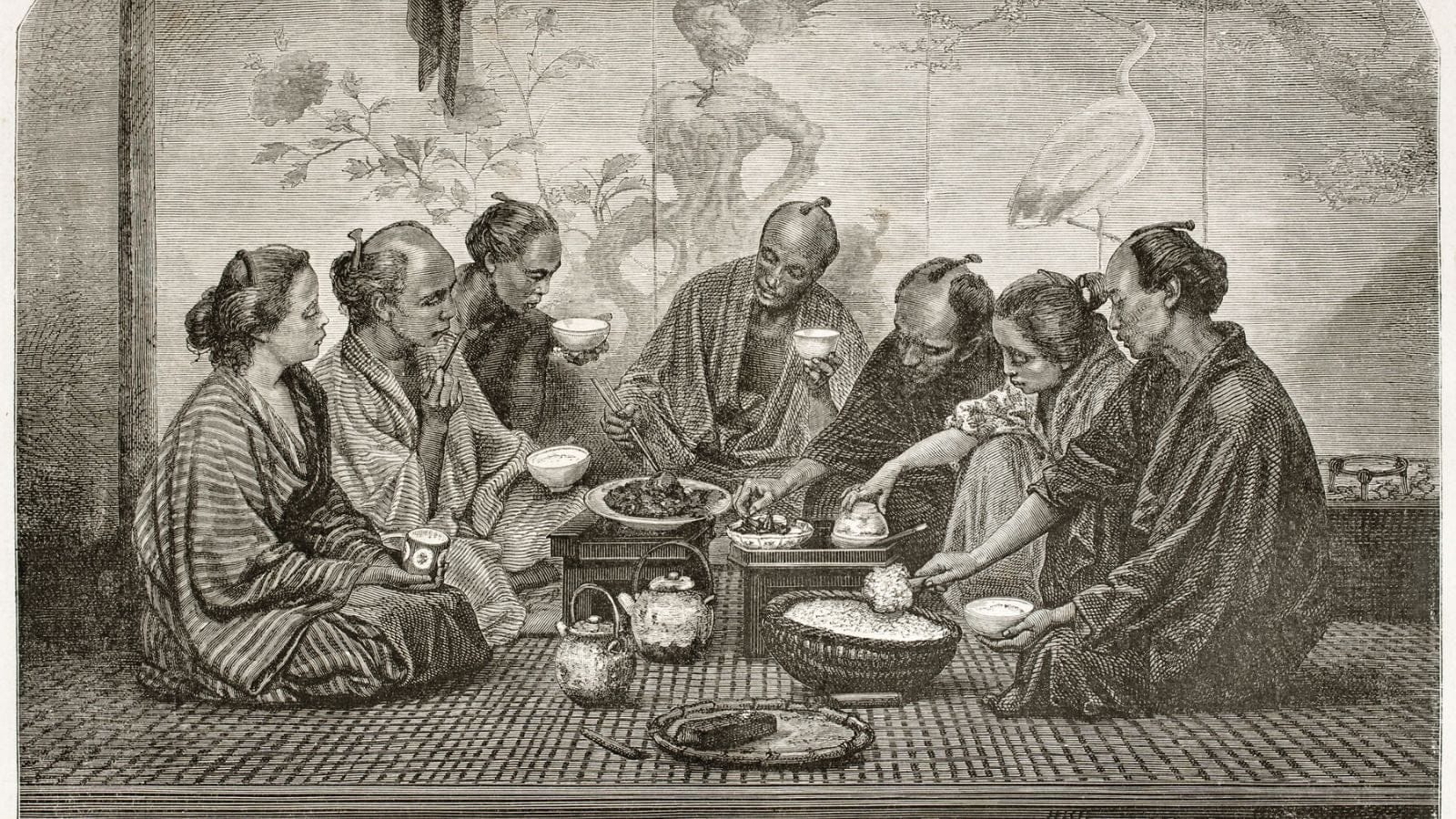

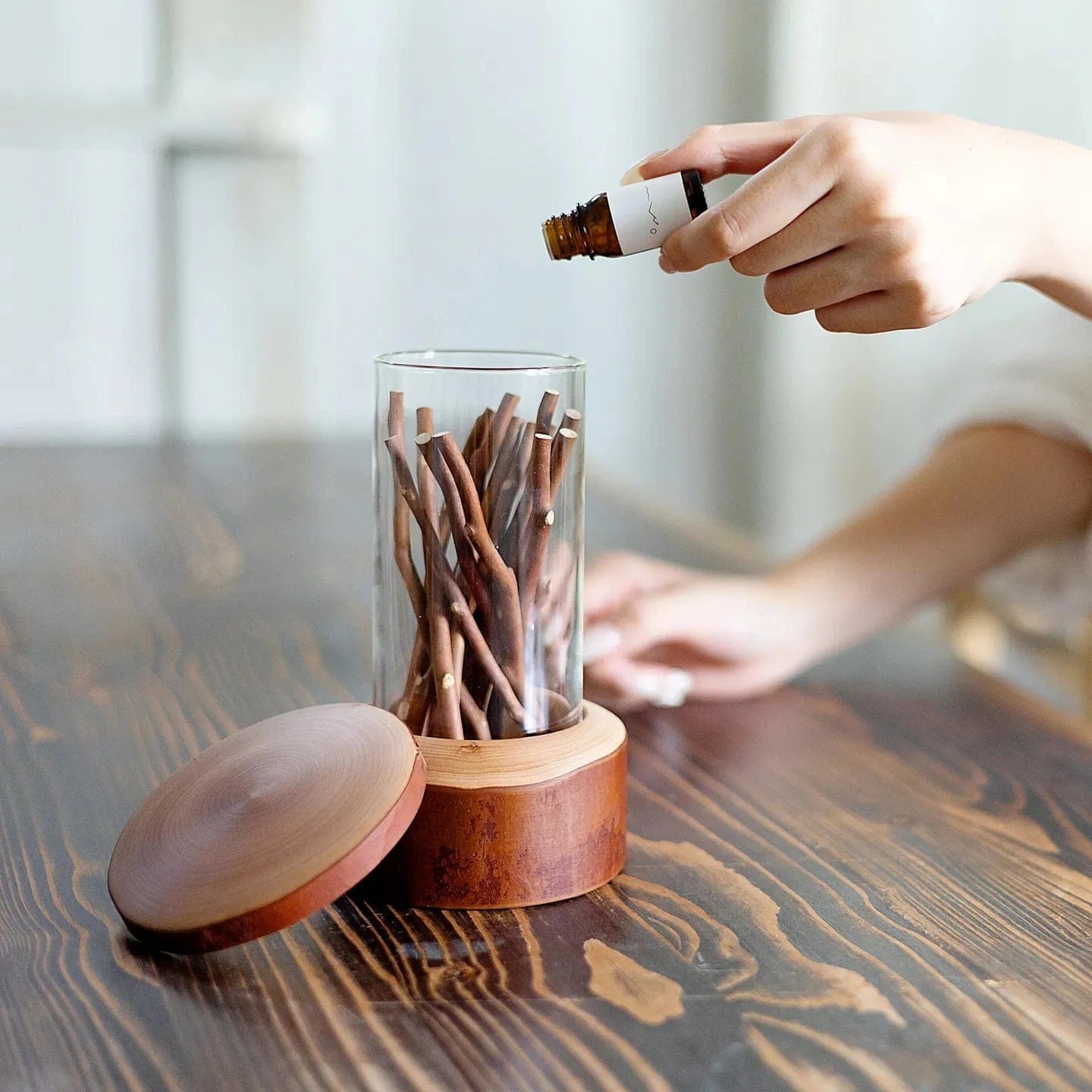
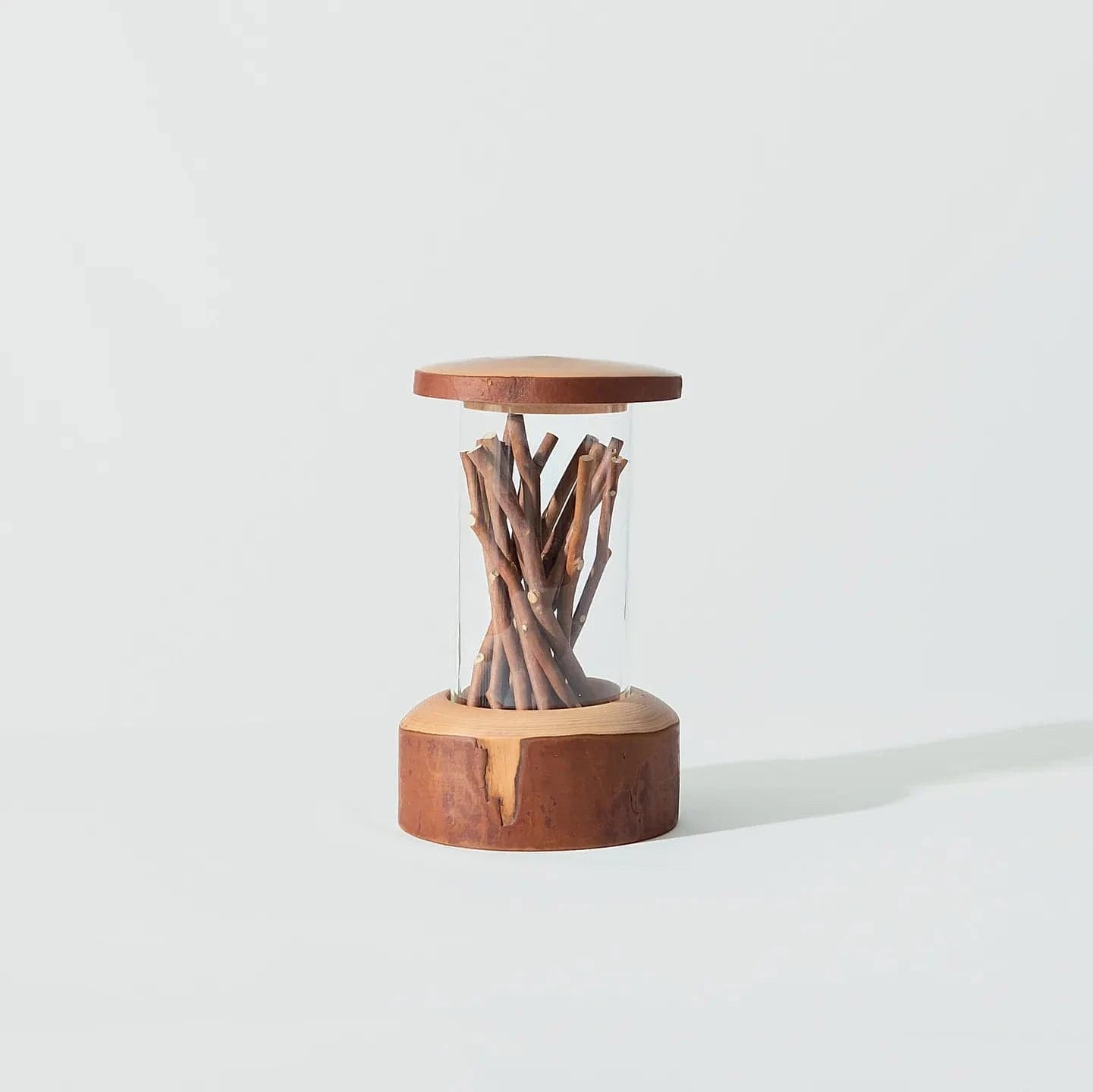
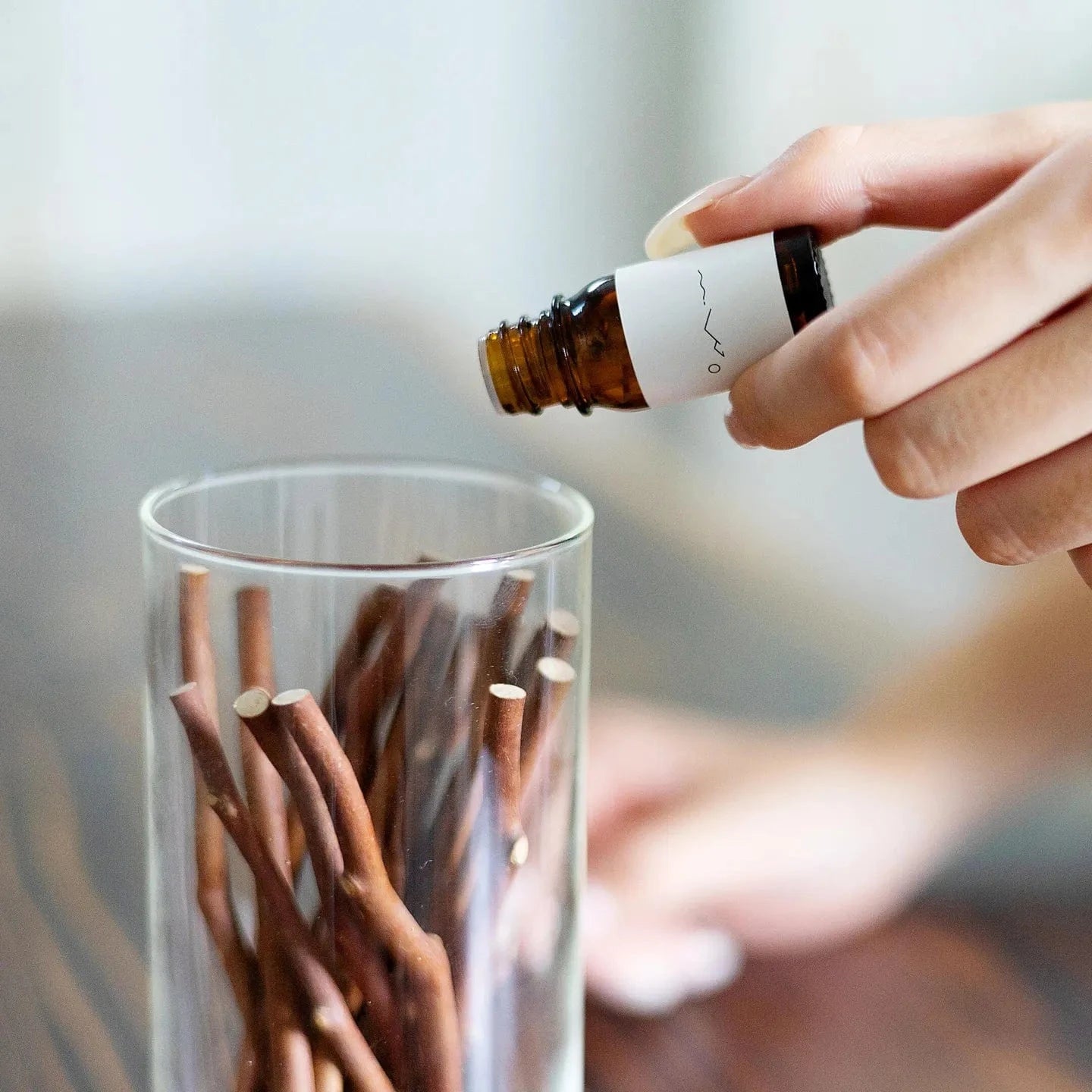
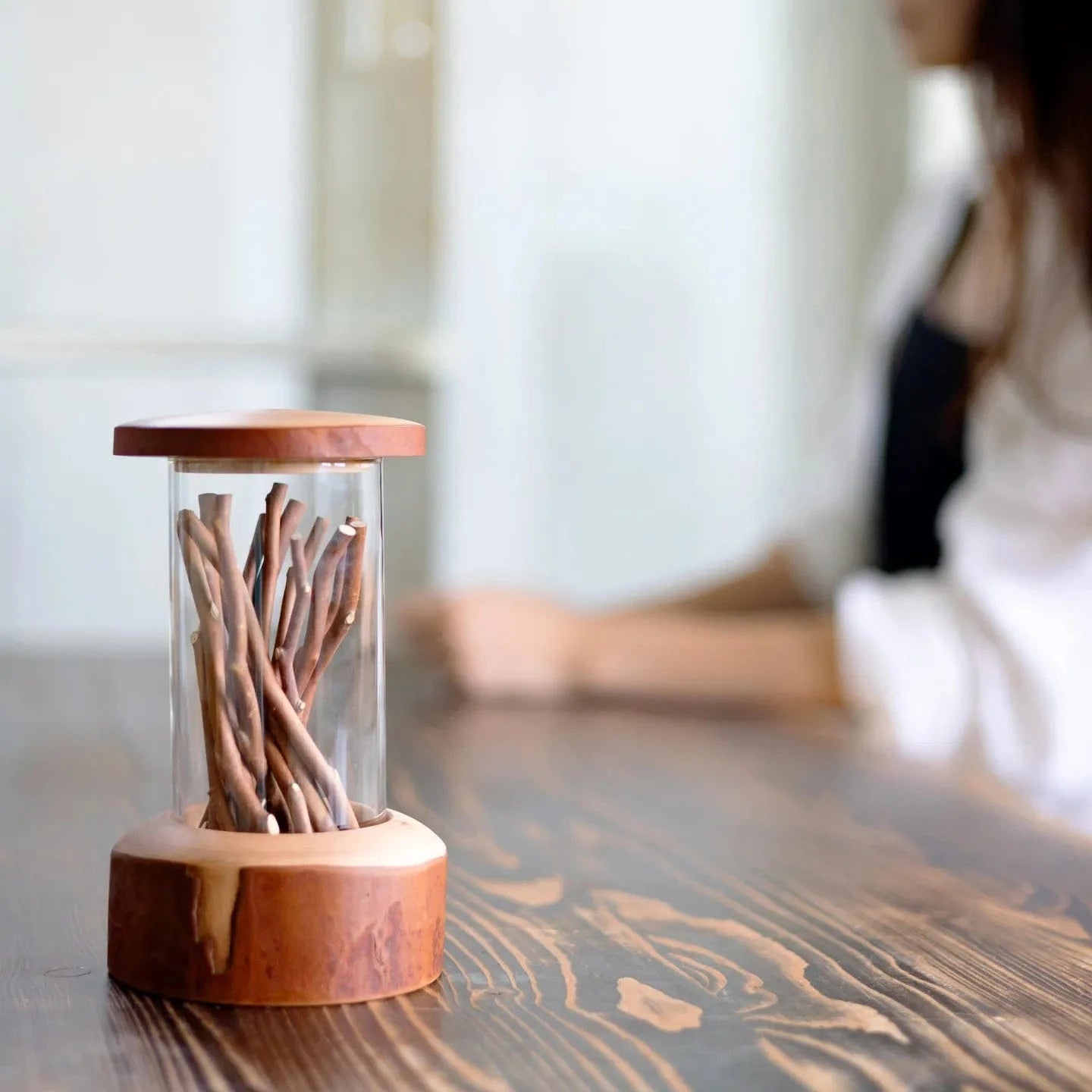







Share: